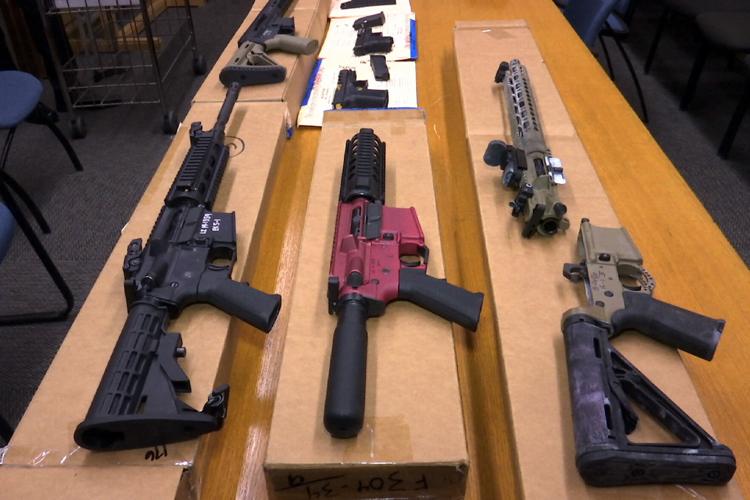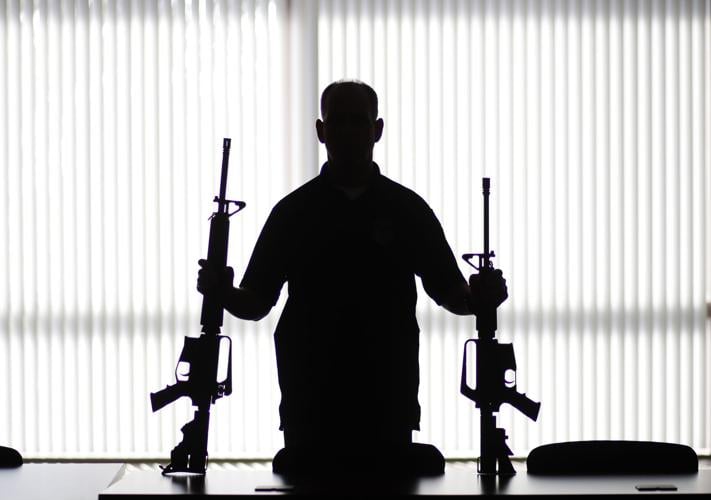PHOENIX — Arizona Attorney General Mark Brnovich is joining a lawsuit to bar the Bureau of Alcohol, Tobacco and Firearms from cracking down on what the agency considers “ghost guns.’’
The Biden administration defines those guns as “unserialized, privately made firearms that law enforcement are increasingly recovering at crime scenes across the country.’’ Last year, law enforcement recovered about 20,000 suspected ghost guns in criminal investigations, a tenfold increase from 2016, the administration has said.
In legal papers filed Wednesday, Brnovich joined with challengers to argue that new rules, set to go into effect next month, violate ATF’s authority and exceed its ability to regulate interstate commerce.
The lawsuit argues the Biden administration is trying to do what it cannot get Congress to enact.
“The final rule unconstitutionally subverts Congress’ authority, exercising quintessentially legislative powers in a manner that could never pass either (let alone both) houses of Congress today, which is precisely why defendants have no intent whatsoever to ask for legislative authorization to take such unprecedented actions,’’ the lawsuit states. “Yet under our Constitution, the president (much less unelected and unaccountable bureaucrats within the executive branch) is not a king who can exercise this sort of unbridled power unilaterally.’’
It also contends the administration is attempting to “broadly rewrite federal gun-control laws to suit a radically anti-gun political agenda.’’
The lawsuit was originally filed earlier this month in North Dakota by a licensed firearms dealer, Gun Owners of America and Eliezer Jimenez, a member of that group who makes his own firearms from parts he acquires.
Brnovich, a Republican running for U.S. Senate, said he is joining to keep ATF from regulating unfinished, non-functional parts of guns as if they were complete firearms.
His office said that “threatens the American tradition of private firearms manufacturing that predates the Revolution.’’
A press aide for Brnovich said using state resources to join the lawsuit is justified because the attorney general “has a right to protect Arizona from overreach of the federal government.’’
There was no immediate comment from ATF, which has yet to file a formal response to the original lawsuit.
“Exceedingly difficult” to trace
The ATF rule has its roots in plans announced by the Biden administration in April.
“Because ghost guns lack the serial numbers marked on other firearms, law enforcement has an exceedingly difficult time tracing a ghost gun found at a crime scene back to an individual purchaser,’’ the White House said in a news release.
Specifically, ATF has proposed banning what the administration refers to as “buy build shoot’’ kits that individuals can purchase online or at stores without a background check. The contents can be readily assembled into a working firearm in as little as 20 minutes with equipment the buyers have at home, the administration says.
Linked to that is a new definition the agency is proposing for a “privately made firearm.’’ Challengers say that term does not exist — and has never existed — in federal law.
“That is because there is no federal prohibition on non-prohibited individuals who, like plaintiff Jimenez, privately manufacture firearms for their own personal use,’’ the lawsuit states. Nor is there is a bar on selling those weapons or requiring they be marked with a serial number, recorded in the books of any dealer, or obtained only after a background check, the lawsuit says.
In filing the lawsuit, the challengers say it is legally irrelevant that the lack of serial numbers makes it more difficult for ATF to track firearms for law enforcement, because only Congress may change the law.
“The security of a free state”
Beyond that, the suit says the rule change will force some companies to halt sales, meaning they will lay off workers. That will raise unemployment, increasing the public benefits that would be paid to these individuals while diminishing sales and income tax revenues, it says.
“The final rule will make it exceedingly harder (if not impossible) for the citizens of the plaintiff states to manufacture their own firearms,’’ the lawsuit states. That would mean preempting states with “more permissive laws’’ that are beyond the reach of the federal government, it says.
It also says the rule infringes on “the lawful acquisition of protected ‘arms’ within the states, the keeping and bearing of which contributes to ‘the security of a free state.’”
The lawsuit separately challenges another provision in the rule that would alter the current law that federal firearms dealers must maintain records for at least 20 years, after which they can be destroyed. The rule requires not only permanent retention but that records be transferred to AFT if the dealer goes out of business, creating what the challengers say is an illegal national gun registry.
The plaintiffs are most immediately asking a judge to issue a preliminary injunction blocking the agency from implementing the rule as scheduled on Aug. 24. But no date has been set for a hearing.
RELATED:
President Joe Biden announced a half-dozen executive actions Thursday aimed at addressing gun violence across the nation that he called an “epidemic and an international embarrassment."
For Star subscribers: Attorney General Mark Brnovich says Tucson's vaccine mandate for city employees breaks a law that doesn't go into effect until Sept. 29. Again, he uses his office to bolster his political future, columnist says.
Arizona Attorney General Mark Brnovich is asking a Pima County judge to immediately restore prosecutors' power to bring criminal charges against doctors who perform abortions.







